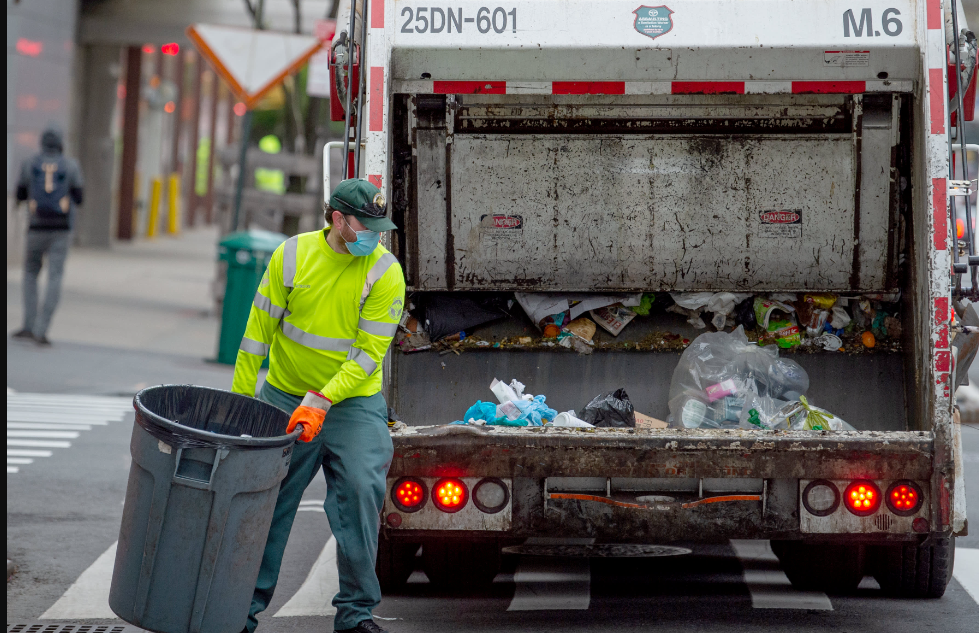worst jobs in the world, While some jobs offer comfort and security, others require individuals to endure extreme conditions, physical hardships, and emotional challenges. In this exclusive article, we will explore some of the world’s worst jobs, shedding light on the difficulties faced by those who undertake these roles and the importance of recognizing their sacrifices and contributions to society.
worst jobs in the world
The worst jobs in the world are difficult to define, as they vary depending on individual preferences and circumstances. However, some jobs are consistently ranked among the worst due to their low pay, dangerous working conditions, or unpleasant tasks.
Here is a list of some of the worst jobs in the world, in no particular order:
- Cleaner
- Line cook
- Telemarketer
- Retail sales associate
- Taxi driver
- Military soldier
- Roofer
- Pest controller
- Garbage collector
- Sewage worker
- Miner
- Oil rig worker
These jobs are often physically demanding, require long hours, and offer little opportunity for advancement. They can also be dangerous, with workers exposed to hazardous materials, extreme weather conditions, and the risk of accidents.
In addition to the factors listed above, some jobs may be considered worse than others due to the emotional toll they can take on workers. For example, social workers, nurses, and funeral directors may deal with difficult and traumatic situations on a daily basis.
It is important to note that everyone has different definitions of what makes a job bad. Some people may not mind working long hours or in dangerous conditions if they are passionate about their jobs and well-compensated. Ultimately, the worst jobs in the world are the ones that are the most unsatisfying and unrewarding to the individual worker.
Sanitation Workers
Collecting and disposing of waste in our cities is a vital but grueling job. Sanitation workers endure exposure to hazardous materials, heavy lifting, and often unpleasant odors. Their work is essential for public health, yet it is frequently underappreciated.
Miners
Delving deep into the Earth’s crust, miners extract valuable resources under challenging conditions. Poor air quality, cave-ins, and the risk of equipment failures make mining one of the world’s most dangerous and demanding professions.
Sewer Inspectors
Crawling through dark and cramped underground tunnels to inspect sewage systems is not for the faint of heart. These workers face potential exposure to toxic gases and hazardous substances, all to ensure our wastewater systems function properly.
Oil Rig Workers
Working on an offshore oil rig means enduring harsh weather conditions, isolation from loved ones, and the risk of oil spills and fires. These workers play a crucial role in the energy industry but face constant danger.
High-Rise Window Washers
Hanging from skyscrapers hundreds of feet above the ground, window washers risk their lives to keep our city skylines gleaming. One slip or equipment malfunction can lead to a life-threatening situation.
Alaskan King Crab Fishermen
Operating in the treacherous waters of the Bering Sea, Alaskan King Crab fishermen endure freezing temperatures, enormous waves, and the constant threat of being swept overboard. Their job is not only physically demanding but also mentally exhausting.
Firefighters
Rushing into burning buildings to save lives and property, firefighters face extreme heat, smoke inhalation, and the risk of building collapse. Their bravery and dedication are unmatched, but their work comes with significant physical and emotional tolls.
Emergency Medical Technicians (EMTs)
EMTs respond to medical emergencies, often under high-pressure circumstances. They witness trauma and loss daily, and the demands of the job can lead to emotional and mental strain.
Prison Guards
Working in correctional facilities means maintaining order and security among inmates. Prison guards face the constant risk of violence and must always be alert to potential threats.
Alaskan Crab Fishermen
Made famous by the TV show “Deadliest Catch,” Alaskan crab fishermen brave freezing waters, heavy machinery, and the risk of being swept overboard by massive waves. The physically demanding work takes a toll on their bodies, and the job is fraught with danger.
How to avoid the worst jobs in the world
If you are looking to avoid the worst jobs in the world, there are a few things you can do:
- Get a good education. A good education will give you more options when choosing a career. It will also make it more likely that you will be able to find a job that is both satisfying and well-paying.
- Do your research. Before you take any job, be sure to research it carefully. Learn about the job duties, pay, and working conditions. Talk to people who work in the field to get their insights.
- Be realistic about your expectations. No job is perfect. There will always be some aspects of your job that you don’t like. Be realistic about what you are willing to accept in a job, and focus on finding one that is a good overall fit for you.
If you do find yourself in a job that you hate, don’t be afraid to make a change. It is never too late to start a new career.
Conclusion, While these jobs are undoubtedly some of the toughest in the world, they also highlight the resilience, dedication, and sacrifices of those who undertake them. It is essential to recognize and appreciate the contributions of these workers, as they play crucial roles in our society, often at great personal cost. Advocating for improved working conditions, safety measures, and support for individuals in these professions is a testament to our gratitude for their service. In acknowledging the challenges they face, we can better understand the value of their work and the importance of supporting those who do the world’s worst jobs.

